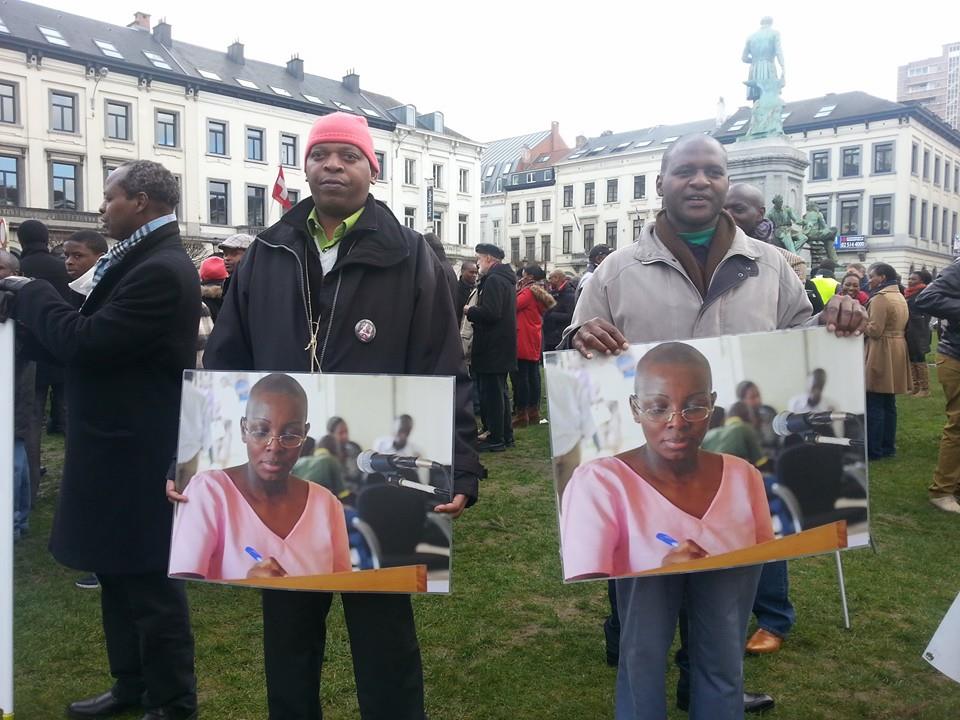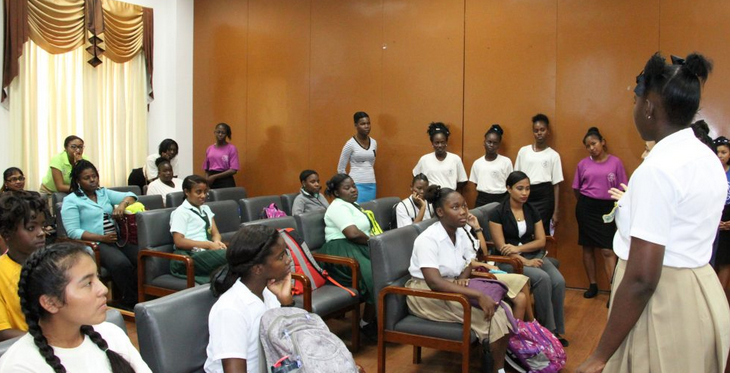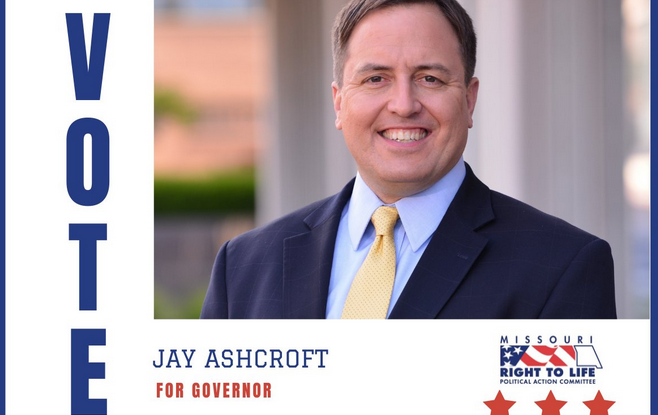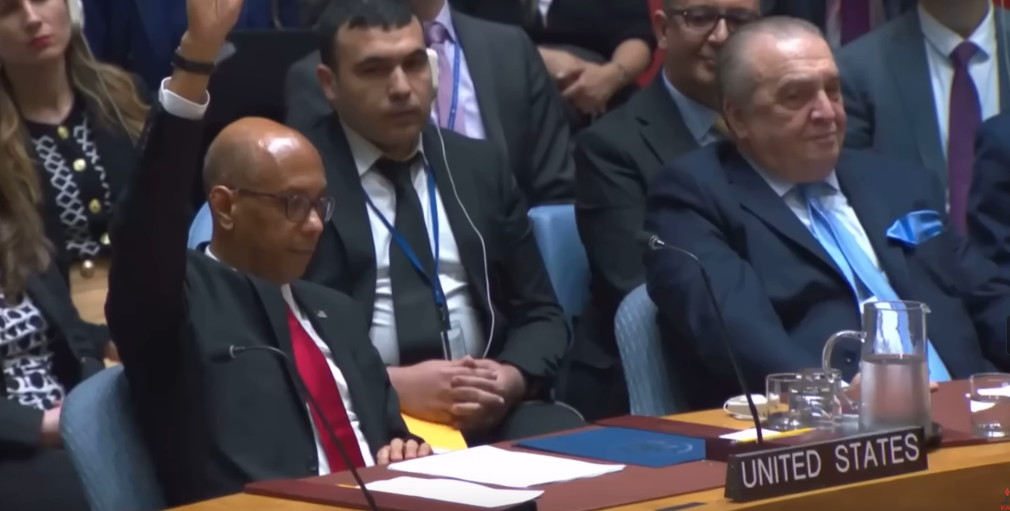Lin Muyizere, the husband of Rwandan political prisoner Victoire Ingabire, has now appeared on Dutch radio and television, but Dutch immigration authorities have not withdrawn their letter stating that they plan to strip him of his naturalized Dutch citizenship, which would make it possible to deport him to Rwanda. Kris Berwouts, a Belgian scholar, writer, and friend of both Victoire and her family, said that this worsens the climate of fear in Rwanda and the Rwandan diaspora. Rwandans in Holland, he said, fear that Victoire’s husband Lin could be small change in a broad bargain between The Netherlands and Rwanda.
Ann Garrison: Kris Berwouts, in 2010, just before Victoire Ingabire returned to Rwanda, a Dutch documentarian was filmed speaking to her youngest son, Rist Shimwa Muyizere, who was then only nine years old. He asked, “Why is your mother returning to Rwanda?” And Rist said, “So there won’t be any more war.” Do you agree with Rist about why Victoire returned to Rwanda?
Kris Berwouts: Well, Victoire lived for 17 years in Holland and decided to go back as a candidate in the presidential election, representing a broad platform of political parties in the diaspora. I often talked with Victoire about her expectations before she left. As you know, the post-1994 regime presents itself as a multiparty democracy, but in reality, it isn’t. It is an autocratic regime dominated by the former rebel group RPF and it functions very much as a classic one party state which controls all aspects of public space with a deadly efficiency. Victoire knew of course that she had no chance to win against a sitting president, Paul Kagame, who has almost complete control over the legislative, executive and judicial institutions, in a country without an independent press. She knew she would not be able to tear down fortress Kagame, built over a decade and a half, but she often said to me: “At some point, someone will have to break the first brick in the wall. Let this be my contribution.”
So she left for Rwanda to fight for real democratic space and genuine multiparty competition. And these are conditions for sustainable stability, not only in Rwanda but in the entire region of Central Africa. So yes, in an indirect way, the kid was right when he said his mum returned to Rwanda so that there would be no more war.
AG: This story is still very obscure to most Americans, despite a lot of outrage in Europe, and Lin Muyizere’s recent appearances on Dutch television. And, even though many of these immigration challenges to Rwandan refugees have been contested in the US and Canada. Between 2008 and 2011, the US government spent between one and two million dollars, and two and a half years, trying and failing to deport an 84-year-old Rwandan refugee, Lazare Kabogaya, who had become a citizen of the U.S. As in that case, a refugee or naturalized citizen’s status is often challenged only after he or she has dared to testify in defense of another Rwandan fighting accusations of genocide crime and/or deportation to Rwanda. Can you give some more context?
KB: The Rwandan regime is not used to open political debate and does not plan to open space for freedom of expression. There are different strategies to marginalize people who disagree with the official standpoints. One way to do that is through the creation of a legal framework in which people are accused of crimes such as divisionism, the denial of genocide or spreading genocidal ideology, which are very broad terms, not clearly defined in the law at all. It is very difficult to defend yourself against such accusations. This terminology is applied to all those who have a different understanding than the official one of the recent history of Rwanda.
This means it can be used to paralyze the leaders of the opposition and to prevent them from carrying out their daily duties and exercising their political rights. This is how potential opponents in Rwanda are neutralized and they also try to do that with people abroad. This is what is happening now with Lin Muyizere. Essential here is that Rwanda does not have the rule of law as we know it, with an independent jurisprudence. The courts are heavily politicized and there is absolutely no guarantee that Lin would get a fair trial in Rwanda, just as his wife never got a fair trial.
AG: Just to demonstrate how extreme this is, you and I have both been denounced as genocide deniers in the Rwandan state press, for criticizing the government from outside the country and/or daring to suggest that Rwanda is more complex than the legally enforced version. And there’s no way either of us would get a fair trial in Rwanda if we were arrested there.
KB: Very definitely not, and that’s the case for many people. And international people, expatriate people, have the advantage to be more visible. For most Rwandans, who pass underneath the international radar, they have no protection at all.
AG: Right. Could you explain the geopolitical significance of this case? There are still many ruthless autocrats in the world. Why are this one, Paul Kagame, and the West’s longstanding support of him so significant?
KB: Central Africa as we know it today has been shaped by complex regional dynamics, through which local disputes and national conflicts have spilled over national borders. Countries as Rwanda, Burundi and Congo have a complex internal situation and a violent recent history, where local antagonisms have become polarized and entangled with those of neighbouring countries. And Rwanda has been very dominant in the region. It started two times a war against the Democratic Republic of the Congo between 1996 and 2002. The entire region is in a very fragile post-conflict situation, and genuine democracy, rule of law and respect for human rights in Rwanda are conditions for sustainable stability in Central Africa.
That is why Lin Muyizere’s case not only concerns Holland and Rwanda, but the entire region and all the international partners who contributed to the peace process and the normalization.
AG: Speaking on Radio France International, the family’s lawyer described this as outrageous, and said that he had asked the immigration authorities to withdraw the letter and apologize to Lin Muyizere. He also said that as more and more people disappear in Rwanda, the Rwandan government attempts to deport more and more Rwandan refugees, He said it has been so emboldened by success that it’s now trying to deport even the husband of Victoire. Do you agree and do you think they will succeed?
KB: I personally have followed several cases of Rwandan refugees in the region, and I know how many of them have been submitted to intimidation, blackmail, physical attacks and even attempts to kill them. It is important that the institutions of democratic countries realize that there is no rule of law in Rwanda, and that people they deliver to the Rwandan authorities will not be able to defend their rights.
AG: Do you think they’ll succeed in having Victoire Ingabire’s husband stripped of his citizenship and deported?
KB: That would go beyond my imagination. I think that by now the real nature of the Rwandan state and the way it is governed is clear to most European countries. I cannot imagine that a country I respect, as The Netherlands, will deliver one of its citizens to Rwanda where we all know that his rights will be violated.
AG: But the family lawyer says that’s already happened to many less visible Rwandan refugees in the Netherlands.
KB: Well, that’s why it’s very important to use Lin Muyizere’s visibility to mobilize and to try to change this.
AG: Jambo News, a Rwandan diaspora publication that is very committed to Victoire’s leadership and her case, published a story with the headline, “Rwanda uses the husband to break Ingabire,” and reported that immigration authorities had actually accused him of lying on his immigration papers about his involvement in genocide in Rwanda, based on nothing but the testimony of two witnesses, who have suddenly come forward after 20 years, even though Lin Muyizere never made any secret of having taken refuge with Victoire and their family in the Netherlands. You’ve said you can’t imagine this will actually happen, but Lin could conceivably be deported and put on trial in Rwanda, couldn’t he?
KB: Not immediately. The first deportation of a Rwandan refugee in the Netherlands back to Rwanda is scheduled for next Monday October 13. But that person never had the Dutch nationality. In Muyizere’s case it will take more time because they first have to strip him of his nationality. If he loses his nationality now, he will be very vulnerable in the further steps of the procedure and he might face deportation in a year or so.
People in his environment are afraid that his case might be used as small change in the broader bargain of bilateral relations between Rwanda and The Netherlands. The Netherlands have always been among the loyal partners of the new regime. Rwanda’s support to the M23 rebel group in Congo last year caused a major crisis in the relation with its international partners. There are attempts to normalize the Dutch-Rwandan relations and people are afraid that deporting refugees back to Rwanda might be part of the giving and taking in that process. ‘
Personally I don’t think they use the husband to break Ingabire. Exactly four years ago she was arrested and since then she has been submitted to two unfair trials. Until today she maintains her dedication, her strength and her serenity. It is not easy to break this lady, and it will not be easy to break Lin neither. I believe instead that the Rwandan regime is hunting Lin to maintain a climate of fear in circles of critical Rwandan voices abroad. Keep them under a permanent intimidation: “You can run but you can’t hide, one day we will get you.” And they do; they killed Karegeya in Johannesburg, they kidnapped and killed many lesser known people in Uganda and other neighbouring countries. And the message they give through Lin is: “even your passport from a white man’s country won’t protect you.
AG: Is there anything else you’d like to say to help an American audience understand the significance of Lin Muyizere’s immigration case?
KB: The genocide in Rwanda was one of the major disasters of our time. This country went through the hell as a result of a policy of exclusion. The elimination of political opponents and critical voices in general. Greed. These still are important features of the post-genocide political system. As long as we do not effectively deal with them, we will not get the risk of violence under control.
AG: That was the first thing Victoire said to me, the first time I recorded her for KPFA Radio. She said that exclusion had created the conditions that led to the genocide, that Kagame was making the same mistake that Habyarimana made, by practicing the politics of exclusion, and that the results could be equally tragic.
KB: That is the worst case scenario. If we don’t want that to happen, it is important that the space for public debate in Rwanda is opened up. But we have to be aware that, if Rwanda falls back into open civil war, it will have terrible repercussions on the entire region, with several countries in a fragile post-conflict phase and many overlapping cross boundary issues and conflicts.












